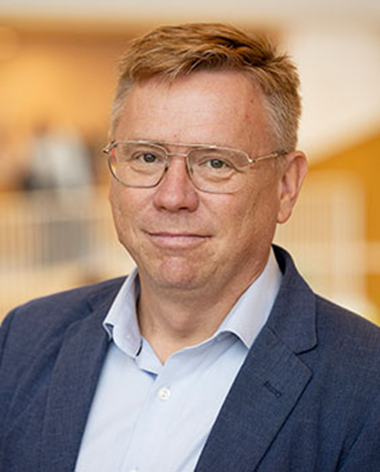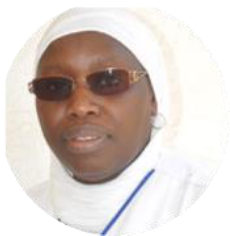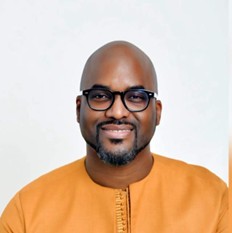Gender, Ethics, and Contextual Considerations in International Clinical Trials
● HOLICARE ACADEMY webinar - 28th May 2025 ●
● HOLICARE ACADEMY webinar ●
28th May 2025
● 13:00 - 15:00 CEST
Exploring how gendered power dynamics shape knowledge production & reimagining research ecosystems to foster greater equity and inclusion
Join us for a thought-provoking webinar exploring how HOLICARE navigates the intersection of gender, ethics, and real-world constraints to foster inclusive and equitable global research partnerships.
● ABSTRACT
The success and impact of scientific research is greatly influenced by gender, ethics, and contextual issues. Inclusion of women and marginalized groups in the leadership of research projects, in their capacity-building activities, and as research participants reduces bias in the findings, increases trust and acceptability of research outcomes, and contributes to long-term and sustained impact. While research ethics principles are well-established and generally understood by the research community, their interpretation and application vary from context to context. For example, the process of informed consent must be different for the more literate vs less literate participants. These issues can be a source of conflict and delays in international clinical trials.
Furthermore, in north-south collaborations, there is often an imbalance. Partners from low-and middle-income countries (LMICs) are frequently relegated to the role of mere data collectors rather than being engaged as equal peers. Ideally, trials conducted in LMICs should be led by organizations in these countries. Authorship of academic articles should also reflect a balance of power. However, local researchers in LMICs often do not have the time or capacity to fully engage with the research due to heavy workloads and other contextual challenges. Therefore, we must design systems that enable effective collaboration by training and providing adequate time and resources to these partners. Intentional efforts are needed to counteract biases and imbalances.
There are also practical considerations that stem from these gender and ethical issues or from the practical realities and regulations in different countries – from shipping logistics and supply chains (as well as maintenance) to local regulatory approvals (vs FDA or CE mark), data sharing and specimen storage (biobanking). When establishing international collaborations, consideration must also be given to the availability of laboratory infrastructure for sample storage, such as biobanks. In some cases, building new infrastructure and capacity is necessary to ensure smooth operations.
Gender, inclusion, and ethics are essential pillars of Holicare, and we see the international clinical trial as an opportunity to incorporate a gender-diverse perspective. We can work towards a more inclusive and effective research environment by designing systems that promote equitable participation and ensuring that collaborations are truly peer-to-peer.
● PROGRAMME
In this webinar, we shall share our approaches, experiences, and lessons learned from Holicare with regard to gender, ethics, and contextual practicalities. This webinar will be structured as follows:
Presentation by Josie Mensah-Kane (Global Access Diagnostics)
Josie will share practical experiences and lessons learned from initiating the Holicare RCT in Ethiopia, Uganda, and Senegal. She will share insights on overcoming logistical, operational, and ethical challenges, such as sample collection, adapting methods to site facilities, and ensuring proper shipping and handling of devices.
Panel Discussion – Moderated by Dr. Johnblack Kabukye (SPIDER, Stockholm University)
This session will bring together experts to discuss key research ethics, gender, and contextual considerations from different country perspectives. The discussants will include:
– Prof Mats Målqvist from Uppsala University, Sweden
– Prof Yap Boum from Mbarara University (MUST/MSF Epicenter), Uganda
– Dr Mekonnen Teferi from AHRI, Ethiopia
- Theoretical and Policy Perspective – Assoc. Prof. Caroline Wamala-Larsson (SPIDER, Stockholm University)
Caroline will conclude the webinar by elevating the discussion to a theoretical and policy level. She will highlight gender and power imbalances in international research collaborations and propose strategies to foster more equitable and inclusive research environments.
Join the HOLICARE Academy and register for this webinar by
clicking here !
HOLICARE Academy Experts

● Josephine Mensah-Kane ●
Josie Mensah-Kane is the Data Science Manager at GADx, with a background in biochemistry and a master’s in bioinformatics. Over the past five years, she has led data science initiatives across various projects, specialising in the application of machine learning to create predictive algorithms for diseases such as sepsis, pancreatic cancer, UTIs, and more. She also has expertise in statistical planning for clinical trials, including sample size calculations, and has been working alongside Devanshi Pandit (Clinical Trials Manager) on the setup of the Holicare clinical trial.

Doctor
● Mekonnen Teferi ●
Dr. Mekonnen Teferi is a researcher at the Armauer Hansen Research Institute (AHRI) in Addis Ababa, Ethiopia, with training in pharmacology and extensive experience in clinical research on infectious diseases. He has led and co-investigated several clinical studies, including international trials such as STREAM and WHO’s SOLIDARITY trial for COVID-19, and pharmacovigilance programs like PAVIA. His contributions also include research on enteric diseases like typhoid and cholera to support vaccine development. He has played a key role in establishing bioequivalence and pharmacokinetic research capacity at AHRI and nationally. Currently, he leads the clinical trials unit at AHRI, focused on advancing diagnosis, treatment, and prevention of infectious diseases.

Professor
● Mats Målqvist ●
Pr. Mats Målqvist is professor of global health and the director of UUniCORN – Uppsala University Conflicting Objectives Nexus. He also leads the Centre for Health and Sustainability at the medical faculty. His research focuses on social sustainability, equity and empowerment. He has published 120+ scientific articles within the areas of implementation science, SRHR, maternal, newborn and child health, and health systems delivery.

Doctor
● Fatoumata Diène Sarr ●
Dr. Fatoumata Diène Sarr is a medical doctor and public health researcher at Institut Pasteur de Dakar with over 25 years of experience. She coordinates the Dielmo-Ndiop malaria cohort and has contributed to major studies on HIV/AIDS and hepatitis B. A specialist in research ethics, she led the SEA-RAFES project to strengthen ethics systems in Francophone Africa. Her work focuses on infectious diseases, equity in global health, and building resilient, context-sensitive research frameworks. She is also actively involved in teaching and mentoring.

Doctor
● Johnblack K. Kabuky ●
Dr. Johnblack K. Kabukye is a medical doctor and health informatics specialist. He has over a decade of experience in clinical cancer care and research on the design, implementation and evaluation of digital health solutions in Uganda. He is currently a Health Systems Research Manager at SPIDER, Department of Computer and Systems Science, Stockholm University, Sweden.

Professor
● Yap Boum II ●
Pr. Yap Boum II is Deputy Incident Manager for the continental Mpox response at Africa CDC and former Executive Director of Institut Pasteur in Bangui. He previously represented Epicentre (MSF), with extensive experience in infectious diseases like TB, malaria, HIV, Ebola, and COVID-19. He led COVID-19 operations in Cameroon and teaches Public Health and Microbiology across Africa. Deeply committed to equity and African leadership in Global Health, he co-founded Kmerpad (washable pads), iDocta (digital health), and HS4Health. His platform The Village uses AI to connect African scientists and decolonize health systems. He holds degrees in microbiology, public health, and entrepreneurship from France, the UK, and South Africa. His vision: a healthier, self-reliant Africa driven by local innovation and partnerships.

Associate Professor
● Caroline Wamala-Larsson ●
Caroline Wamala-Larsson is an associate professor and director of SPIDER at Stockholm University’s Computer and Systems Sciences department. Her research focuses on gender and technology.
